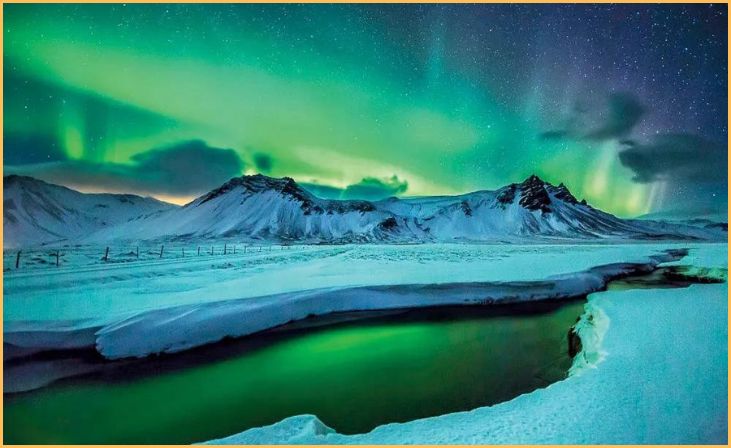Embark on a global odyssey with us, as we traverse the intricate tapestry of tranquility woven by the top 10 most peaceful countries. In a world frequently entangled in the web of chaos, these nations emerge as serene sanctuaries, offering a respite from the tumultuous currents of our times. Join our expedition as we intricately examine the underlying factors that intricately contribute to their extraordinary state of peace and the far-reaching global implications of their harmonious coexistence.
In a landscape often dominated by discord, these peaceful nations stand out as beacons of hope, proving that amidst challenges, harmony is not only achievable but sustainable. The journey we invite you on goes beyond borders, embracing the unique stories and strategies that have transformed these countries into bastions of tranquility.
Our exploration delves into the heart of what defines peace in these regions – whether it be the preservation of pristine landscapes, the fostering of inclusive societies, or the establishment of stable political structures. It’s a journey that transcends geographical boundaries, offering a panoramic view of how these nations have successfully navigated the complexities of our globalized world while maintaining a commitment to peace.
10 Of The World’s Most Peaceful Countries
Iceland

Iceland’s status as one of the world’s most peaceful countries can be attributed to its unique geographical and geopolitical factors. The nation is situated on a remote island in the North Atlantic, which has historically shielded it from external threats. Additionally, Iceland has maintained a strategic position of neutrality and abstains from having a standing army. Instead, it relies on a small, well-equipped coast guard for defense. The absence of military forces contributes significantly to the overall sense of tranquility within the country.
Also Read:- Most Beautiful Lakes near Bend, Oregon
New Zealand
Beyond its breathtaking landscapes, New Zealand prioritizes policies that foster social cohesion and environmental sustainability. The nation has a robust social welfare system, providing citizens with access to education, healthcare, and housing. Furthermore, New Zealand’s commitment to environmental conservation, renewable energy, and indigenous rights sets it apart. The Maori culture’s integration into the national identity promotes inclusivity and unity, adding to the overall peaceful atmosphere.
Portugal
Portugal’s journey to peace is intertwined with its historical evolution and modern-day policies. Having transitioned from authoritarian rule to a stable democracy, Portugal places a strong emphasis on diplomatic solutions to conflicts. The country’s commitment to human rights, social equality, and environmental sustainability is evident in its progressive policies. Portugal’s engagement in international organizations and peacekeeping missions further solidifies its role as a peaceful and cooperative global player.
Austria
Nestled in Central Europe, Austria has historically maintained a stance of neutrality, avoiding involvement in military conflicts. The country’s commitment to international diplomacy is reflected in its active participation in peacekeeping missions and humanitarian efforts. Austria’s strong legal system ensures domestic tranquility, and its emphasis on education and cultural development contributes to a society that values peace and harmony.
Denmark

Denmark’s reputation for peace is rooted in its strong welfare system, social policies, and commitment to human rights. The Danish society promotes inclusivity and equality, ensuring a sense of social harmony. The country actively participates in international peacekeeping missions and humanitarian aid projects, aligning with its commitment to global stability. Denmark’s low crime rates and well-functioning institutions further contribute to its peaceful environment.
Canada
Canada’s vast and diverse landscape is mirrored in its inclusive and multicultural society. The nation is recognized for its commitment to peacekeeping missions, diplomatic engagement, and humanitarian aid. The Canadian government prioritizes social welfare, healthcare, and education, creating a stable and harmonious environment. The country’s emphasis on diversity and inclusivity fosters a sense of unity, contributing to its overall peaceful image on the global stage.
Singapore
Despite its small size, Singapore stands out as a global economic powerhouse with a commitment to law and order. The city-state’s success is attributed to efficient governance, strict adherence to the rule of law, and a focus on economic stability. Singapore’s emphasis on education and technological innovation contributes to its prosperity and overall peaceful environment. The nation’s strict legal system ensures a safe and secure society, making it an attractive destination for residents and businesses alike.
Czech Republic
The Czech Republic’s journey to becoming a peaceful nation is marked by its transition from the Velvet Revolution to a stable democracy. The country has successfully navigated historical challenges, fostering a commitment to peace and stability. The Czech Republic’s strong economy, social cohesion, and efficient public services contribute to its peaceful environment. As a central European nation, it actively participates in regional cooperation and global initiatives that promote peace, democracy, and human rights.
Japan
Japan’s commitment to pacifism and technological innovation has played a pivotal role in its status as a peaceful nation. The aftermath of World War II led to the adoption of a pacifist constitution, emphasizing the renunciation of war. Japan’s society values harmony, and its strong sense of community contributes to low crime rates and social stability. The country’s disaster resilience and advanced technological infrastructure showcase its commitment to ensuring the well-being and safety of its citizens.
Switzerland

Nestled in the heart of Europe, Switzerland has long been recognized for its commitment to neutrality and humanitarian efforts. The nation’s policy of not engaging in military conflicts and its role as a mediator in international disputes contribute to its reputation as a peaceful haven. Switzerland’s direct democracy model ensures citizen participation in decision-making, promoting a sense of social cohesion. The country’s emphasis on social welfare, environmental sustainability, and international cooperation cements its place as one of the world’s most peaceful nations.
Also Read:- Mexico’s Best Beach Towns
Conclusion
In drawing the curtain on this insightful journey through the world’s most peaceful countries, a profound realization emerges — peace is not a mere void left by the absence of conflict, but a purposeful pursuit of harmony. These nations, standing as paragons of tranquility, go beyond the passive state of not being at war; they actively cultivate and champion the principles that foster unity, understanding, and collaboration.
Our exploration reveals that these peaceful countries are not simply devoid of discord; they are architects of a deliberate and conscientious commitment to creating a natural environment where diverse communities coexist harmoniously. It’s an intentional effort to build bridges instead of walls, to seek common ground rather than perpetuate division.
FAQs
Peace rankings are determined through a comprehensive analysis of various factors, including social harmony, political stability, and the absence of violence. While there is some subjectivity in the methodology, the rankings aim to provide an objective assessment.
Global peace indices consider factors such as societal safety, political stability, and international relations. Quantifiable data, surveys, and expert assessments are employed to measure and rank countries based on these criteria.







